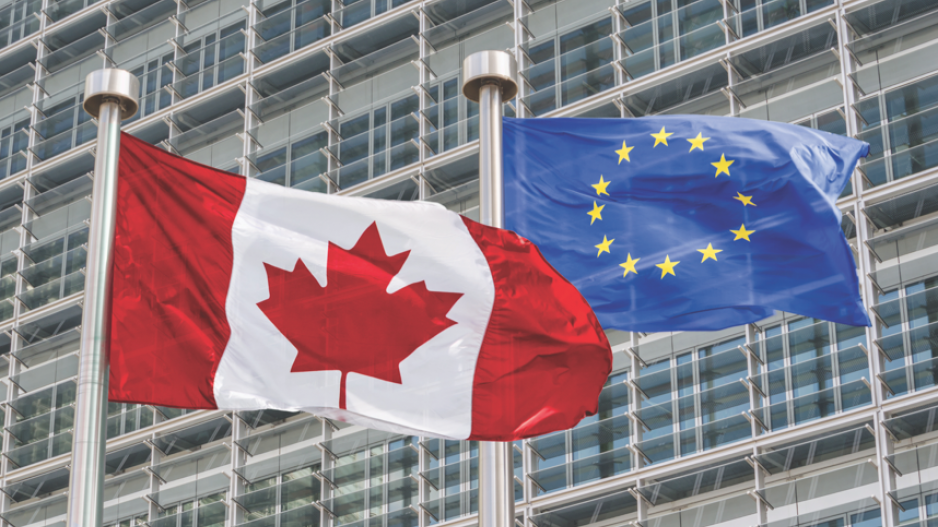Despite contention from some observers that Canada’s free-trade agreement with the European Union has not yielded enough gains for Canadian exports in its year and a half of existence, one analyst says a recent legal ruling could spur greater trade with EU countries.
The European Court of Justice ruled late last month that the dispute-resolution mechanism in the Comprehensive Economic and Trade Agreement (CETA) between Canada and the EU does not break the laws of individual countries in the accord. Given that arguments over its legality almost scuttled the deal in 2017, the court ruling was a welcome sight for observers like Didier Culat.
“Talking about it in abstract does not give you appreciation for what it’s used for,” said Culat, senior associate at BCF Business Law in Quebec and a B.C. native who specializes in EU trade issues. “This ruling out of Europe is good for Canadian business, because that means that if there is a dispute, you are not some guys from Merritt going before a tribunal in Croatia. Because that wouldn’t be a very comforting process.”
In 2017, the nearly finalized CETA was almost upended when Wallonia – the French-speaking region of Belgium – asked the courts to investigate whether the dispute-settlement mechanism was legal.
Critics contended that the mechanism allows companies to sue governments on the grounds that their rights have been infringed, potentially allowing firms to disregard local laws.
The court ruling, however, said the mechanism has “no effect of the autonomy of the EU legal order.” The news came as a relief for European leaders, since they have also included the same clause into free-trade deals with Singapore and Vietnam. The mechanism was designed to prevent companies from challenging local government jurisdiction over welfare at work, product safety, consumer protection and fundamental rights.
Culat said concerns about corporations abusing the mechanism to counter local laws are unfounded, given that there have been only a handful of dispute settlements going through the process in the 30-year history of North American free trade. Most resulted in the upholding of local laws. In the rare case when a dispute didn’t uphold local jurisdiction, it was for good reason, he said. Such was the case, Culat said, with AbitibiBowater Inc. vs. Government of Canada in 2010, in which Ottawa agreed to a settlement payment of $130 million for the expropriation of the company’s forestry rights in Newfoundland and Labrador.
CETA is awaiting ratification by 15 of the 28 European countries in the agreement, including major players like Germany and France. Culat said the court decision’s main effect is to pave the way for ratification, although CETA has already been provisionally applied since late 2017.
There has been some debate about the effectiveness of the trade deal so far. Canadian pork and beef producers said that while CETA removed tariff barriers, other non-tariff barriers, such as European food health standards, have limited their success in exporting to Europe.
Meanwhile, European exports to Canada such as cheese have filled their allowed quotas.
Culat conceded that it has been a challenge to get businesses in B.C. to look at CETA but added the task has been no less difficult in Eastern Canada: “It’s difficult in B.C. because Europe is pretty far away, and B.C. is much more oriented towards the Pacific Rim than to Europe. But in Eastern Canada, it’s not easier because our manufacturing base is oriented towards the United States. We are integrated into American supply lines … so it’s a tough sell.”
But he added that the arrest of Huawei Technologies Co. Ltd. CFO Meng Wanzhou and the retaliatory arrest of two Canadian citizens in China, as well as a de facto ban on Canadian canola by Beijing, may mean that CETA, with its court-approved dispute-settlement mechanism, is more attractive than ever to Canadian businesses looking for trade alternatives.
Culat noted that trade with the United States has had a rough ride under the administration of Donald Trump, meaning that it is now vital for Canada to pursue a market like the EU to diversify – and the court ruling should be another catalyst. •




